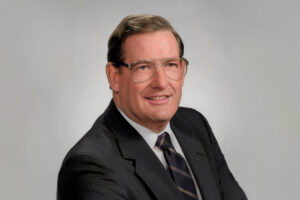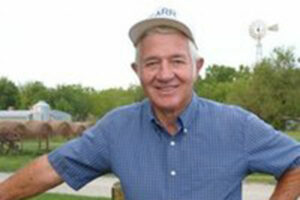Interview of Carl Holmes, September 3, 2020
Interviewed by Rex Buchanan
In this 2020 oral history interview, former State Representative Carl Holmes discusses his observations of state water policy formulation in the 1970's through 2012. Holmes began his involvement in water policy as a farmer and active member of his community in southwest Kansas. In many respects, his experiences reflect the water-energy nexus. Holmes observed cities and irrigators mining water in southwest Kansas. He recalled developing a comprehensive understanding of water issues by interviewing the managers of the state’s water resources. In this interview, Holmes described how he managed the House Energy and Natural Resources Committee by creating subcommittees and educating Show Moremembers on how to work bills and guide them through the process. He discussed his bipartisan work with Representative Ken Grotewiel and other committee Democrats in the 1990s, actions that resulted in the House Speaker removing him from the chairmanship of the committee. Holmes described how irrigation changed over time from flood to sprinkler technology and how sprinkler systems have become more efficient. However, Holmes observed that groundwater levels continued to decline leading to abandoned wells, the growing of crops that require less water, the return to dryland farming, and, for some, the call for diversion of water from distant sources, such as the Missouri River, to sustain farming and communities on the plains. Show Less


